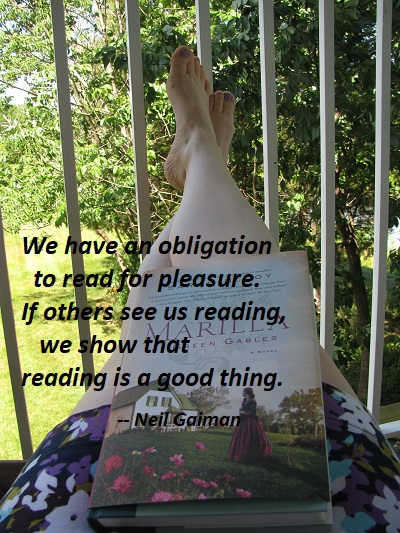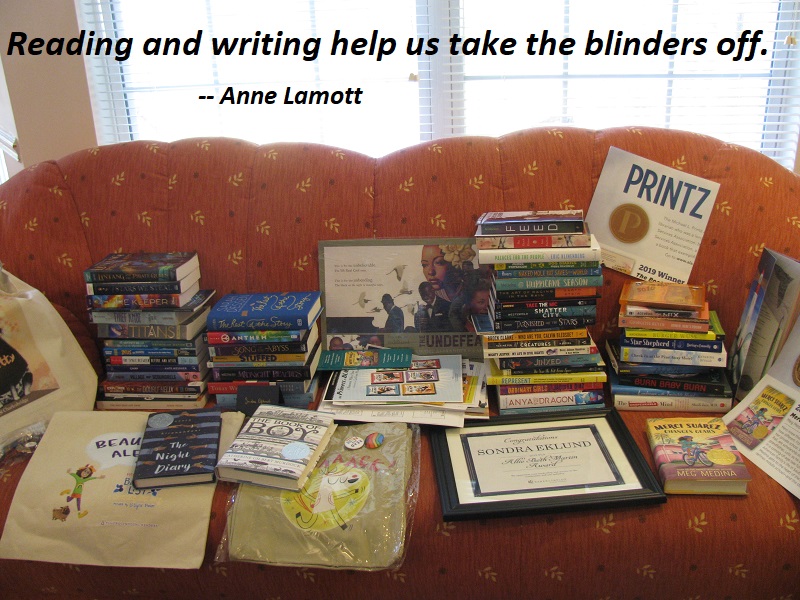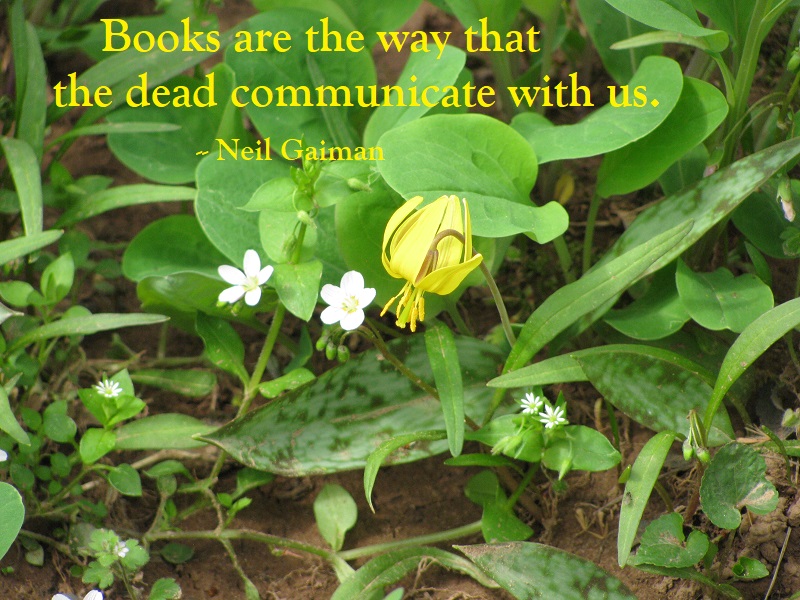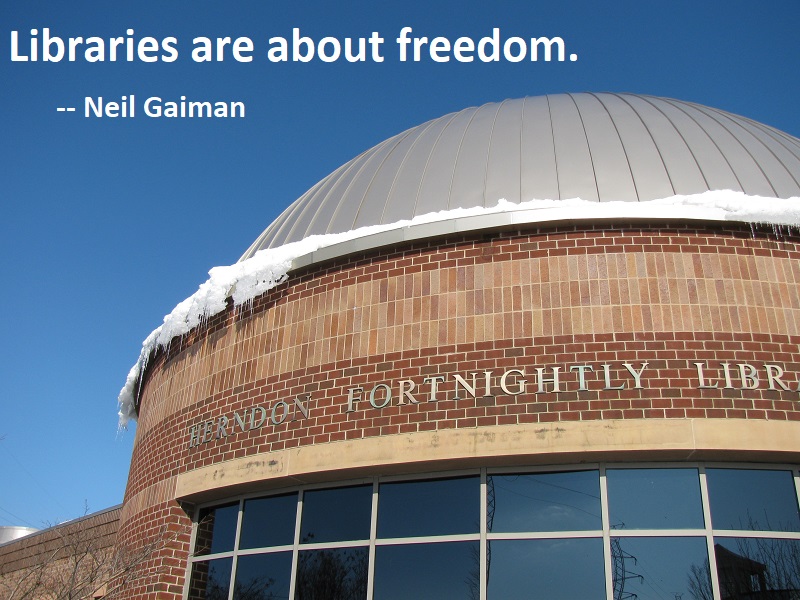Places of Enchantment
Libraries are a bit like forests; they are enchanted places to get lost in.
— Oliver Jeffers and Sam Winston, The Dictionary Story
Photo: Forest in snow, South Riding, Virginia, January 7, 2025
Libraries are a bit like forests; they are enchanted places to get lost in.
— Oliver Jeffers and Sam Winston, The Dictionary Story
Photo: Forest in snow, South Riding, Virginia, January 7, 2025
Words – Even though they are small, they are great at making the inside of your head big.
— Oliver Jeffers and Sam Winston, The Dictionary Story
Photo: South Riding, Virginia, January 6, 2025

We have an obligation to read for pleasure. If others see us reading, we show that reading is a good thing.
We have an obligation to support libraries, to protest the closure of libraries.
If you do not value libraries you are silencing the voices of the past and you are damaging the future.
— Neil Gaiman, Art Matters, “Why Our Future Depends on Libraries, Reading and Daydreaming”

Reading and writing help us take the blinders off so we can look around and say “Wow,” so we can look at life and our lives with care, and curiosity, and attention to detail, which are what will make us happy and less afraid.
— Anne Lamott, Almost Everything, p. 99
Photo: After 2019 ALA Annual Conference

Books are the way that the dead communicate with us.
The way that we learn lessons from those who are no longer with us, the way that humanity has built on itself, progressed, made knowledge incremental rather than something that has to be relearned, over and over.
— Neil Gaiman, Art Matters, “Why Our Future Depends on Libraries, Reading and Daydreaming”
Photo: Bull Run Regional Park, Virginia, April 8, 2019
Libraries are about freedom.

Freedom to read, freedom of ideas, freedom of communication.
They are about education, about entertainment, about making safe spaces and about access to information.
— Neil Gaiman, Art Matters, “Why Our Future Depends on Libraries, Reading and Daydreaming”
Photo: Herndon Fortnightly Library, Herndon, Virginia, February 12, 2010
Writers reduce when they write, and readers reduce when they read. The brain itself is built to reduce, replace, emblemize . . . Verisimilitude is not only a false idol, but also an unattainable goal. So we reduce. And it is not without reverence that we reduce. This is how we apprehend our world. This is what humans do.
Picturing stories is making reductions. Through reduction, we create meaning.
These reductions are the world as we see it — they are what we see when we read, and they are what we see when we read the world.
— Peter Mendelsund, What We See When We Read, p. 415-416
Give me a great novel or memoir, some tea, and a cozy spot to curl up in, and I’m in heaven. I love to live in another person’s thoughts; I marvel at the bonds I feel with people who come alive on the page, regardless of how different their circumstances might be from mine. I not only feel I know these people, but I also recognize more of myself. Insight, information, knowledge, inspiration, power: All that and more can come through a good book….
Books, for me, used to be a way to escape. I now consider reading a good book a sacred indulgence, a chance to be any place I choose. It is my absolute favorite way to spend time. What I know for sure is that reading opens you up. It exposes you and gives you access to anything your mind can hold. What I love most about reading: It gives you the ability to reach higher ground. And keep climbing.
— Oprah Winfrey, What I Know For Sure, p. 25-26
I know that my life is marked by the road signs of my beloved books, each one symbolizing who I was when I read it, shaping who I have become. The uninitiated might say that I am lost in my books, but I know I am more found than lost.
— Donalyn Miller, The Book Whisperer, p. 49
Beginners are more likely to choose to do an activity when they are successful at it and when they get pleasure from participation in the activity right from the start. This is why reading aloud is such a winning strategy in the making of readers. The novice reader experiences the pleasure of stories in a risk-free environment where it is impossible to fail or appear incompetent.
— Catherine Sheldrick Ross, Lynne (E.F.) McKechnie, and Paulette M. Rothbauer, Reading Matters, p. 45